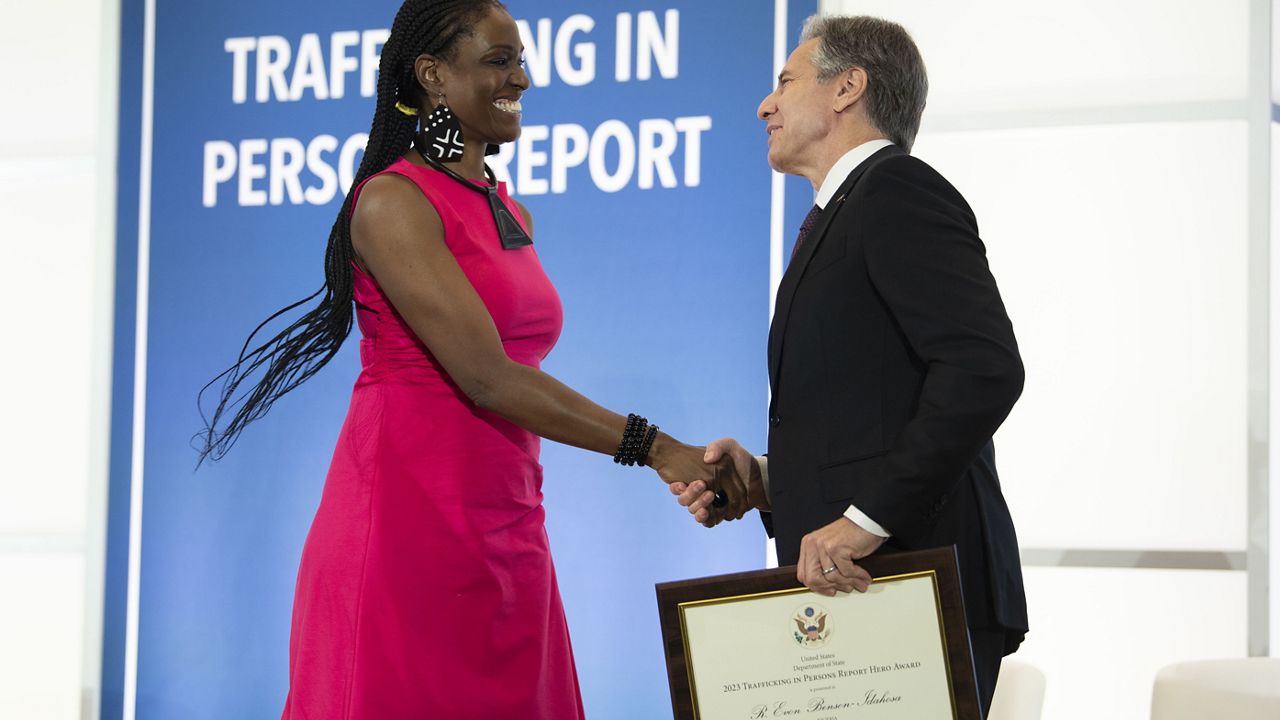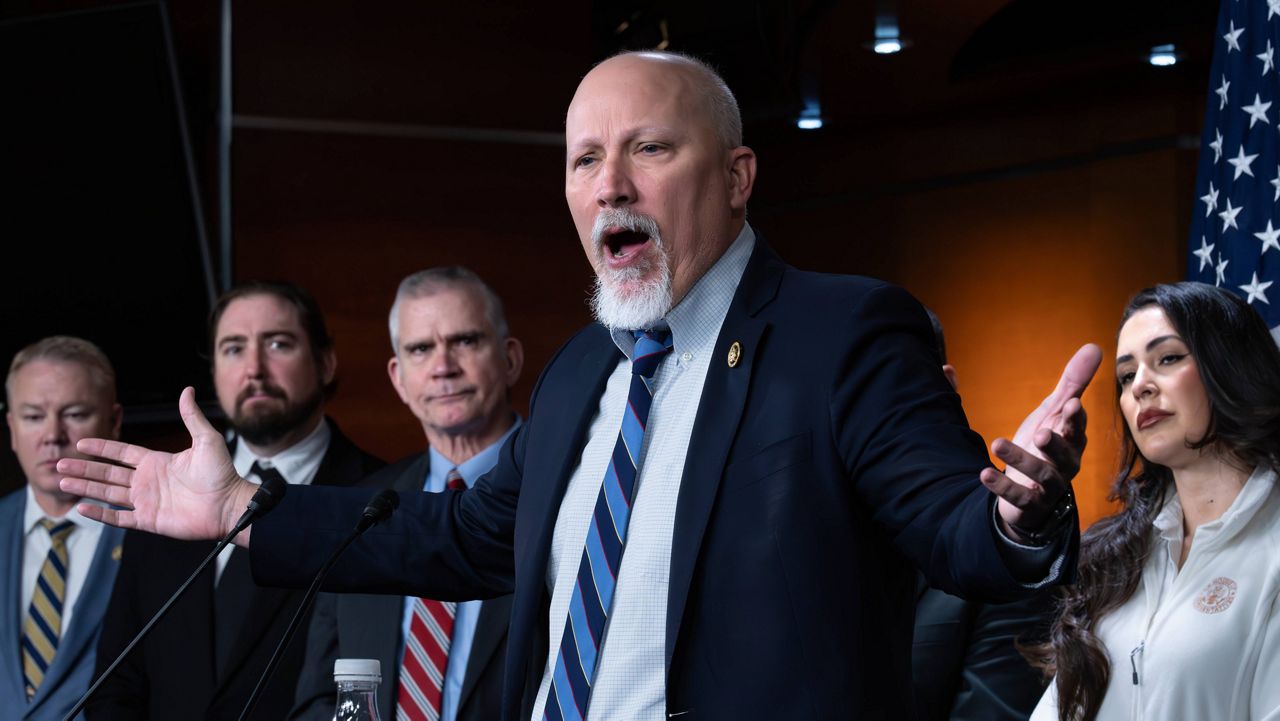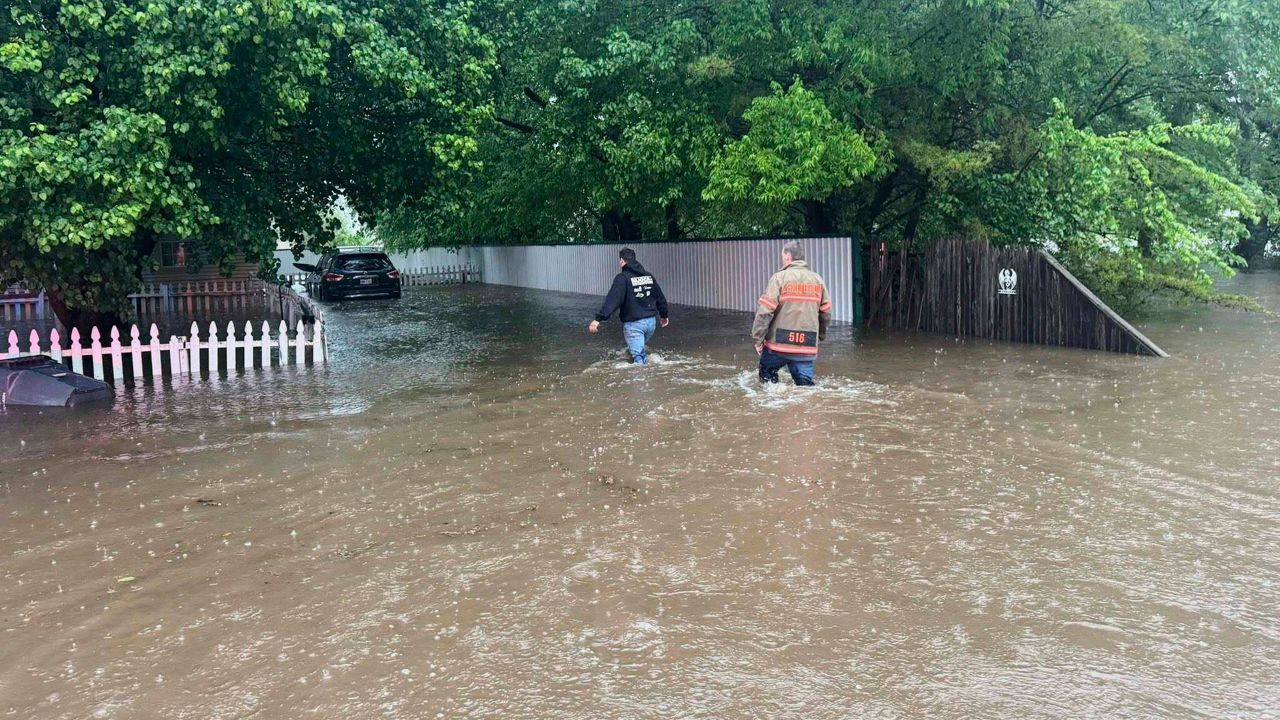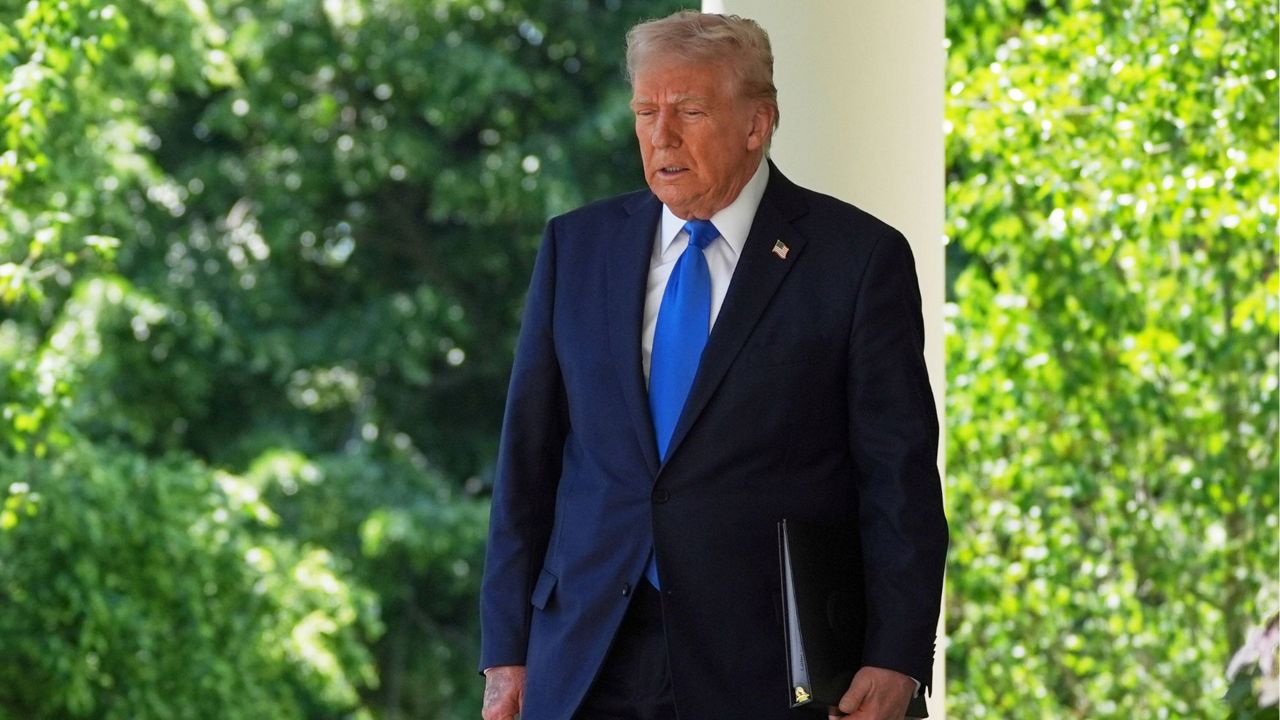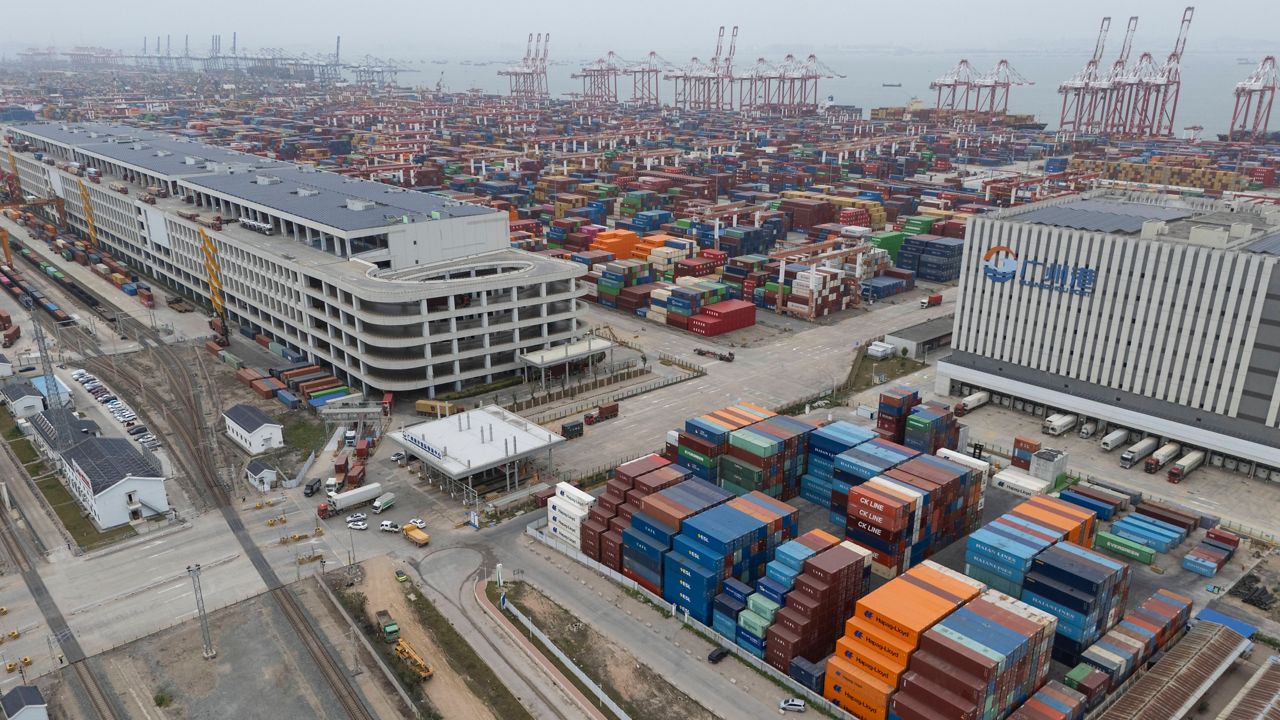State Department officials highlighted new programs and partnerships created to combat human trafficking while calling for stronger coordination between governments, companies and NGOs at a ceremony on Thursday unveiling the 2023 Trafficking in Persons Report.
The annual report – this year an overview of 188 countries and territories around the world – assesses the impact of new efforts to fight trafficking. It also identifies areas in which the problem is growing and where officials are falling short.
The State Department estimates more than 27 million people are victims of human trafficking.
“The United States is committed to combating human trafficking because it represents an attack on human rights and freedoms,” Secretary of State Antony Blinken said in remarks at the event on Thursday.
Blinken pointed to three concerning trends displayed in this year’s report: the expansion of forced labor, a rise in online scams used in trafficking and an increase in boys and men identified as victims.
Forced labor is one of two main categories of human trafficking recognized by the U.S. and occurs when force or fraud is used to exploit work or service from an individual against his or her will. Blinken said as more people around the world gain access to the internet, traffickers are increasingly using cyber scams to draw people in.
“The pandemic supercharged this trend. Traffickers capitalized on widespread unemployment to recruit victims with fake job listings and then forced them to run international scams,” he said.
Blinken also noted boys and men are often overlooked when it comes to this issue, adding that from 2004-2020 “the percentage of boys identified as victims of human trafficking rose five-fold.”
The report looked at 150 organizations receiving U.S. grants related to trafficking in 2018 and found only one had a program specifically for male victims.
“This false perception has had some quite frankly devastating and tangible consequences, with far fewer support services typically allocated to male victims of trafficking,” he said.
Cindy Dyer, Ambassador-at-Large to Monitor and Combat Trafficking in Persons, focused on the partnerships being created to address trafficking and emphasized increased collaboration between different levels of government and different countries. She noted that governments in the European Union came together to protect Ukrainians from becoming victims of trafficking while fleeing Russia’s invasion.
Dyer said coordination between government, NGOs and the private sector, such as technology companies, can also be helpful. She called trafficking a “financially motivated crime,” and pointed to a partnership between PayPal and Polaris, a U.S.-based NGO focused on human trafficking, that is interrupting traffickers’ “cash flows and [enabling] parallel prosecutions for financial crimes.”
Thursday’s event also honored the ‘2023 TIP Report Heroes’ for their efforts to fight human trafficking. One of those honored, R. Evon Benson-Idahosa, who runs an NGO focused on sex trafficking, told a story about a young Nigerian woman who was trafficked to Libya and then Europe.
Benson-Idahosa said when the woman passed away in 2016, her last words to Benson-Idahosa were ‘Auntie, I’m dying.’
“Those three words still echo in my mind and serve as the impetus for why we at Pathfinders – the NGO I founded to protect survivors and prevent the sex trafficking of Nigerian women at home and abroad – continue to do this work,” she said.




